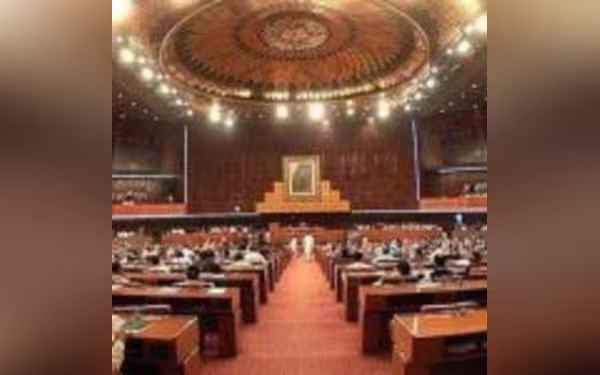Sunday, July 7, 2024 12:22 PM
Jamiat Ulema-e-Islam (F) Proposes Bill on Judges' Dual Nationality
- Proposed bill aims to prevent judges from holding dual nationality
- Focus on judges' loyalty to state and Constitution for transparency
- Controversy surrounding judge prompts call for judiciary integrity
 Image Credits: pakobserver
Image Credits: pakobserverJamiat Ulema-e-Islam (F) introduces a bill in the National Assembly to prevent judges from holding dual nationality, emphasizing loyalty to the state and Constitution for judiciary transparency and integrity.
Jamiat Ulema-e-Islam (F) has put forth a bill in the National Assembly with the aim of preventing judges from holding dual nationality. This move comes in the wake of a controversy involving a judge from the Islamabad High Court. The bill, introduced by Noor Alam Khan, suggests amendments to certain articles of the Constitution pertaining to the appointment of judges in the Supreme Court and High Courts. The proposed change is designed to ensure that judges exhibit loyalty to the state by prohibiting individuals with dual citizenship from serving in the judiciary.
The primary motivation behind this bill is to avoid potential conflicts of interest that could arise if judges possess dual nationality. It underscores the significance of judges' allegiance to the Constitution. The issue has recently garnered attention, with the Registrar's Office of the Islamabad High Court addressing concerns raised by Senator Faisal Vawda. The office clarified that having dual citizenship does not automatically disqualify a person from becoming a judge under Pakistan's legal system.
Moreover, the Islamabad High Court has confirmed that Justice Babar Sattar, who was the subject of a social media campaign, is a Pakistani national without dual citizenship. The campaign against Justice Sattar involved the unauthorized disclosure of personal information, such as travel documents and tax details, coupled with false allegations. This incident unfolded subsequent to a letter from six IHC judges, including Justice Sattar, urging the Supreme Judicial Council to investigate alleged interference by intelligence agencies in the judiciary.
The proposed bill by Jamiat Ulema-e-Islam (F) to restrict judges from holding dual nationality reflects a broader effort to uphold the integrity and impartiality of the judiciary in Pakistan. By emphasizing the importance of judges' loyalty to the state and the Constitution, the bill aims to ensure transparency and accountability within the legal system. As discussions around this bill continue, it remains crucial to balance the need for judicial independence with the imperative of maintaining public trust in the judiciary.













